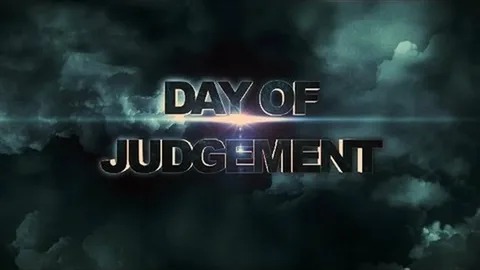The meaning of the Arabic word Qiyamah is something that happens all of a sudden. In the terminology of the Quran, it is an important event that would occur at the end of the world and continue thereafter. All prophets have informed us about this significant event. in this article on Arabian Tongue we will explorer signs of day of judgement.
Significance of the Day of Judgement

Understanding the gravity of the Day of Judgment is paramount for Muslims. It shapes their worldview, instilling a consciousness about the consequences of their actions in this world and the hereafter. The belief in accountability before the Almighty serves as a moral compass, guiding adherents toward righteous living.
signs of day of judgement
“And on the day when He will gather them as though they had not stayed but an hour of the day” ( Quran 10:45)
According to the Holy Quran, the arrival of that day is absolutely imminent and it says: There is no doubt about it. But it has not mentioned the exact date of this event and has introduced it only as something, which would come all of a sudden. There are various signs of the coming of the Day of Judgment, both major and minor, but all of them show how and when the time will come. There are many signs that have already happened, that are currently taking place and those that have not yet come to pass.
signs of day of judgement have happened in the past
We can start with signs that have already taken place in the past:
- Splitting of the Moon.
- Death of the Prophet Muhammad
- A form of death that will kill thousands of Muslims. (Understood to refer to the plague of Amway during the caliphate of ‘Umar ibn al-Khattab.)
- Major fighting in Madinah (understood to refer to the battle of al-Harrah during the caliphate of Yazid, 63 AH).
- The Muslim conquest of Jerusalem.
- The Muslim conquest of Constantinople.
- Two large groups of Muslims will fight in a war.
- A war between the Muslims and a reddish people with small eyes, wearing sandals made of hair (understood to refer to the Mongol Tatar invasion of the Islamic lands.)
- A peace agreement between the Muslims and non-Muslims from the yellow race (Chinese, Mongols, etc.)
- Thirty impostors (dajjal) will appear, each thinking he is a prophet.
signs happening in the present days
As there are some signs that have appeared in the past, there are signs of the Day of Resurrection that appear in our current world, including:
- Naked, destitute, barefoot shepherds will compete in building tall buildings.
- The slave woman will give birth to her master or mistress.
- A trial that will enter every Arab household.
- Knowledge will be taken away (by the death of people of knowledge) and ignorance will prevail.
- Wine (intoxicants) will be drunk in great quantities.
- Illegal sexual intercourse will become widespread.
- Earthquakes will increase.
- Time will pass more quickly.
- Tribulations will prevail.
- Bloodshed will increase.
- A man will pass by the grave of another and wish he was in the latter’s place.
- Trustworthiness will be lost, that is when authority is given to those who do not deserve it.
- People will gather for Prayer but will be unable to find an imam to lead them.
Signs yet to be shown
Having explained some of signs of day of judgement that have appeared in the past and present is worth noting that there are signs that will occur but no human has felt them including:
- The number of men will decrease, whilst the number of women will increase, until for every man there are 50 women.
- The Euphrates will reveal a treasure of gold, and many will die fighting over it, each one hoping to be the one who gains the treasure.
- The Romans (Europeans) will come to a place called A’maq or Wabiq, and an army of the best people will go forth from Madinah to face them.
- The Muslim conquest of Rome.
- The Mahdi (guided one) will appear and be the Imam of the Muslims.
- Jesus Christ will descend in Damascus, and pray behind the Mahdi.
- Jesus will break the cross and kill the swine, i.e. destroy the false Christianity.
- The Antichrist (al-Masih al-dajjal, the false christ) will appear, with all his tools of deception, and be an immense trial. He will be followed by 70,000 Jews from Isfahan (present-day Iran).
- The appearance of Ya’juj and Ma’juj (Gog and Magog), and the associated tribulations.
- The emergence of the Beast from the Earth, carrying the Staff of Moses and the Seal of Solomon, will speak to the people, telling them they did not believe with certainty in the Divine Signs.
- A major war between the Muslims (including Jews and Christians who truly believe in Jesus after his return) led by Imam Mahdi, and the Jews plus other non-Muslims led by the Antichrist.
- Jesus will kill the Antichrist at the gate of Ludd (Lod in present-day Israel, the site of an airport and a major Israeli military base).
- A time of great peace and serenity during and after the remaining lifetime of Jesus.
Some other signs
These were not only signs that would appear, but other signs that included historical and spiritual events, including:
- Wealth will come so abundant that it will become difficult to find someone to accept charity.
- Arabia will become a land of gardens and rivers.
- Society will then decay.
- The buttocks of the women of the tribe of Daws will again sway in circumambulation (tawaf) around the idol Dhul-Khulsah.
- A great fire in the Hijaz, seen by the inhabitants of Busra.
- Three major armies will sink into the earth: one in the east, one in the west, and one in Arabia.
- An Abyssinian leader with thin shins will destroy the Kaaba.
- The huge cloud of smoke.
- The sun will rise from the west (its place of setting).
- A gentle wind that will take the souls of the believers.
- There is no one left on the earth saying, “Allah, Allah” or “There is no god except Allah.”
- Eventually, the Day of Judgment is established upon the worst of the people, who copulate like donkeys in public.
- The blowing in the Trumpet by the Angel Israfil, upon which everyone will faint except as Allah wills.
- The second blowing in the Trumpet, upon which everyone will be resurrected.
How Muslims Prepare for the Day of Judgment

In the tapestry of Islamic beliefs, the Day of Judgment holds a profound place. It is a day when every soul will be held accountable for its deeds, determining the ultimate destination—Heaven or Hell. The journey towards preparing for this momentous day is one that involves a multifaceted approach encompassing faith, worship, morality, and community engagement.
Preparation in Faith
The foundation of preparing for the Day of Judgment lies in strengthening one’s faith. Muslims engage in deep introspection, reaffirming their belief in the oneness of Allah and the prophethood of Muhammad (peace be upon him). This unwavering faith becomes the bedrock for subsequent actions and behaviors.
Embracing repentance and seeking forgiveness is a pivotal aspect of faith preparation. Recognizing one’s shortcomings and sincerely seeking forgiveness from Allah fosters a sense of humility and a commitment to personal growth.
Acts of Worship
Regular prayers are the cornerstone of a Muslim’s connection with Allah. The five daily prayers serve not only as a means of spiritual connection but also as a constant reminder of the divine presence in every aspect of life. Each prayer is an opportunity for repentance and seeking Allah’s mercy.
Charity, another fundamental pillar of Islam, plays a crucial role in preparing for the Day of Judgment. Muslims are encouraged to be generous in their giving, acknowledging the transient nature of worldly possessions and the importance of sharing with those in need.
Moral and Ethical Conduct
Muslims prepare for the Day of Judgment by embodying the teachings of compassion, kindness, and justice. Treating others with respect and empathy becomes an integral part of their ethical conduct. Avoiding harmful actions and negative behaviors contributes to the purification of the soul.
Reading and Understanding the Quran
The Quran, the holy book of Islam, serves as a comprehensive guide for Muslims. Reading and understanding its verses provide spiritual insights and guidance on leading a righteous life. The Quran becomes a source of solace, wisdom, and direction in the journey toward the Day of Judgment.
Dhikr (Remembrance of Allah)
In the hustle and bustle of daily life, Muslims engage in Dhikr, the remembrance of Allah. This practice involves reciting phrases and prayers that serve as a constant reminder of the divine presence. Dhikr cultivates mindfulness, gratitude, and a deep connection with the Creator.
Avoiding Sinful Acts
Preparing for the Day of Judgment necessitates a conscious effort to recognize and abstain from sinful acts. Muslims strive to avoid behaviors prohibited in Islam, understanding the impact of their actions on their spiritual well-being. This commitment to righteousness contributes to a pure and virtuous life.
The Role of Dua (Supplication)
In the preparation for the Day of Judgment, Muslims turn to Dua, heartfelt supplications to Allah. These prayers seek guidance, forgiveness, and mercy. Dua is a powerful tool that reinforces the connection between the believer and the Creator, providing solace and strength.
Learn Now: Learn Quran Online
FAQs
Are the signs of the Day of Judgment the same across all religions?
No, different religions and cultures have unique interpretations of the signs leading to the Day of Judgment.
How can individuals prepare spiritually for the Day of Judgment?
Spiritual preparedness involves self-reflection, repentance, and a commitment to virtuous living according to one's religious teachings.
Do natural disasters have a specific role in eschatological beliefs?
Yes, many religious traditions associate natural disasters with divine warnings or signs of an impending reckoning.
Is there a timeline associated with the signs of the Day of Judgment?
The timelines vary widely among different religious traditions, and interpretations are often subjective.
How can interfaith dialogue contribute to understanding eschatological beliefs?
Interfaith dialogue fosters mutual understanding, allowing individuals to appreciate diverse perspectives on the signs of the Day of Judgment.
Conclusion
In navigating the signs of the Day of Judgment, it becomes evident that diverse perspectives shape our understanding of these prophecies. Whether rooted in religious texts, societal observations, or personal reflections, the recognition of these signs prompts us to consider our role in shaping the future. As we strive for spiritual awareness, ethical living, and interfaith dialogue, we contribute to a shared narrative that transcends individual beliefs.

